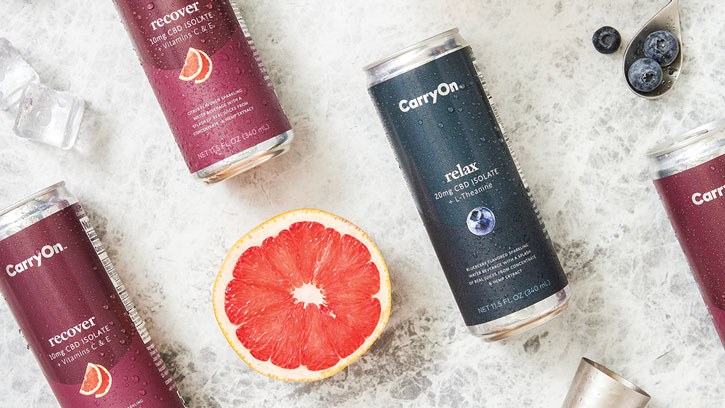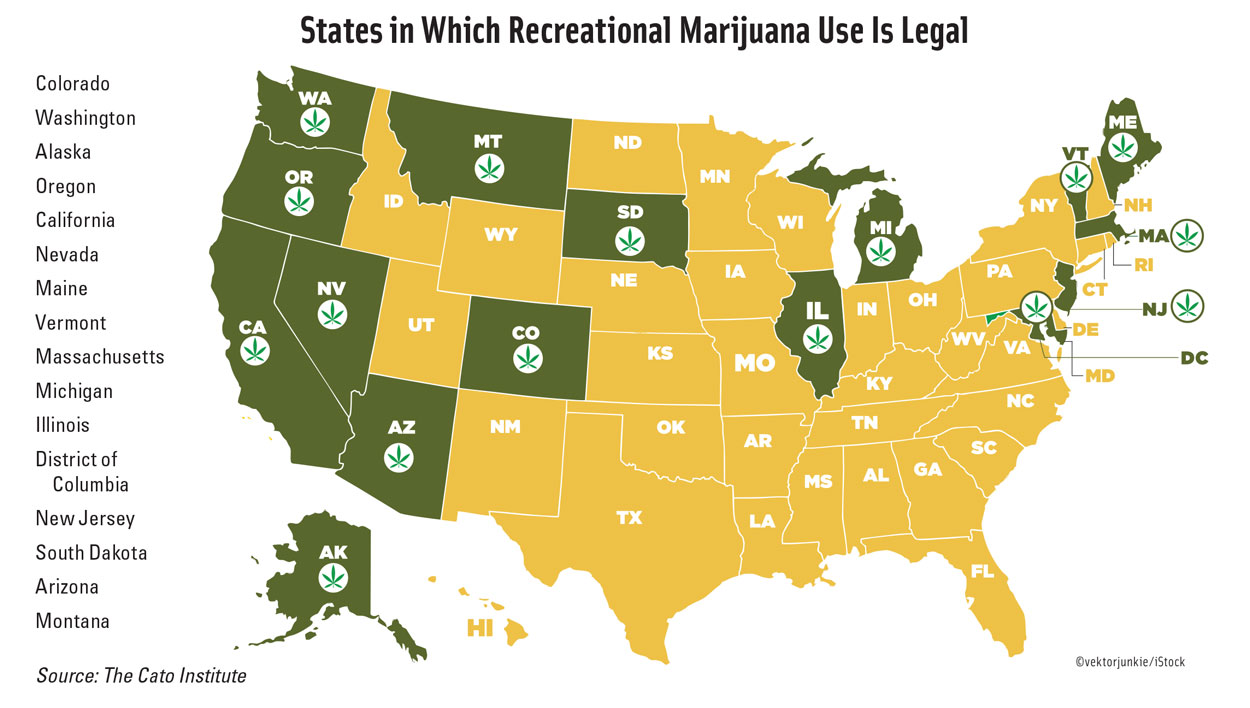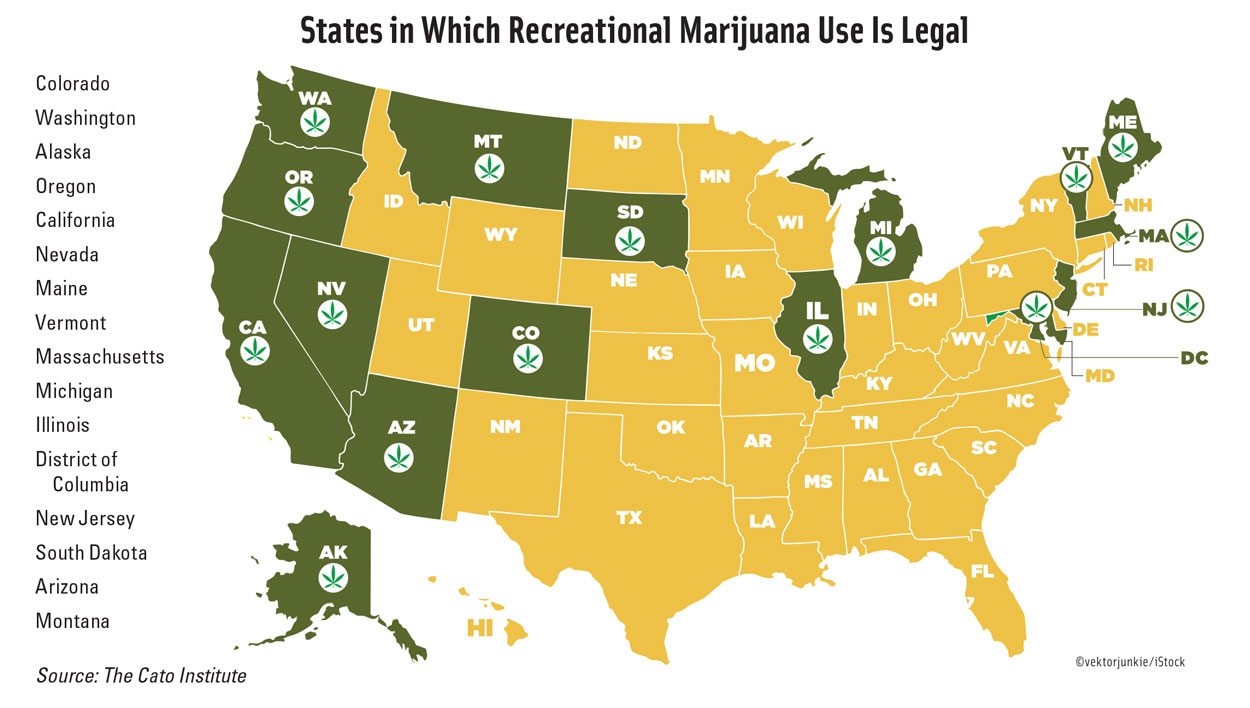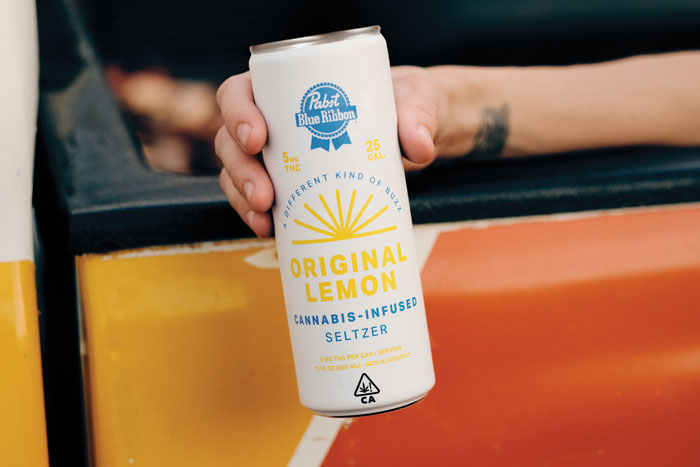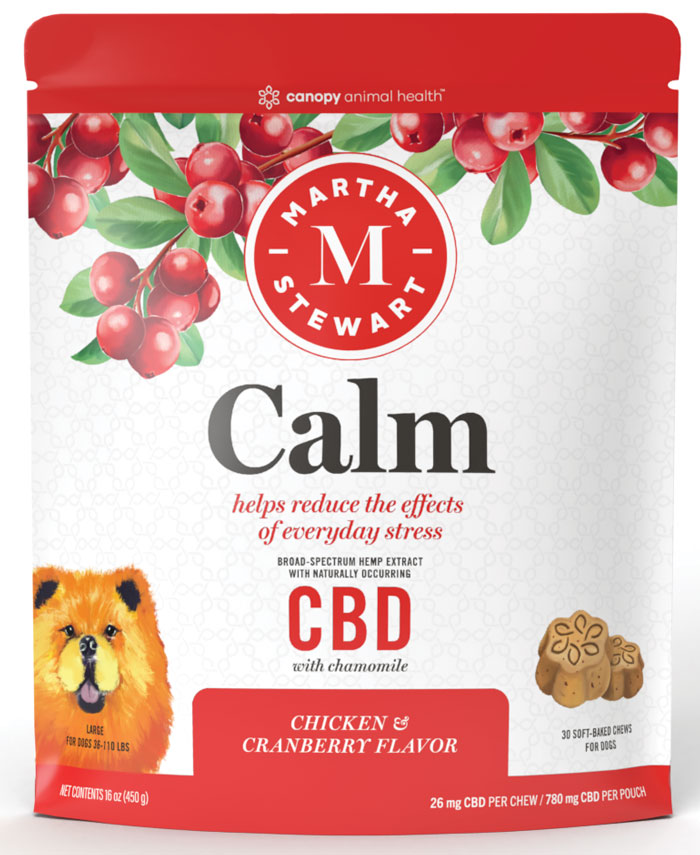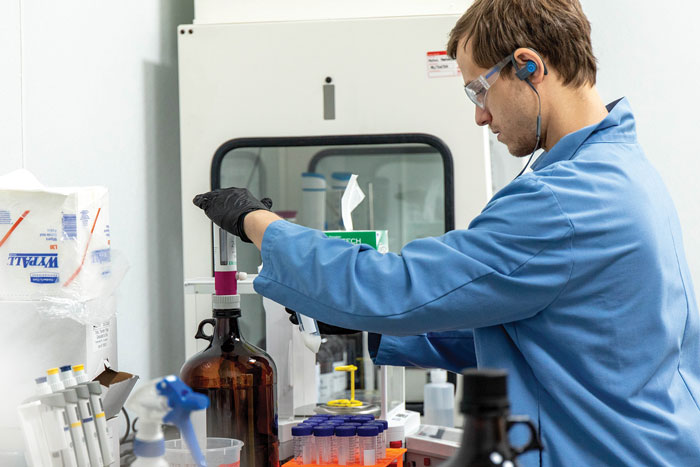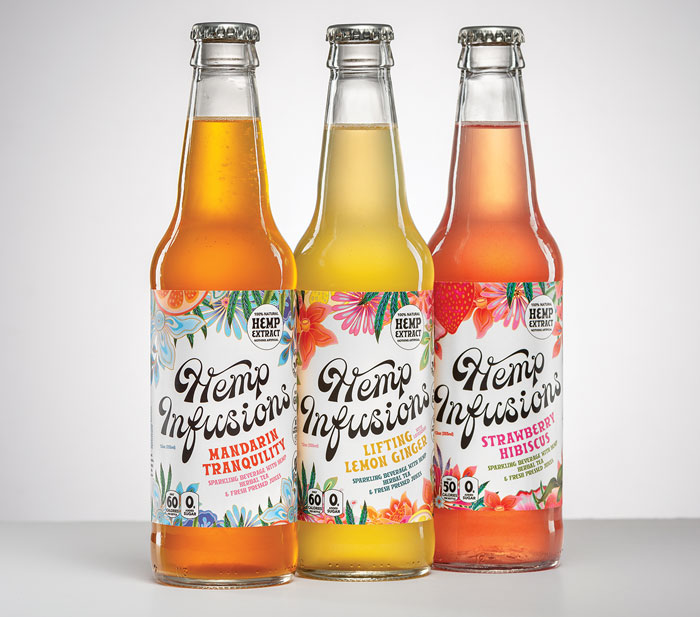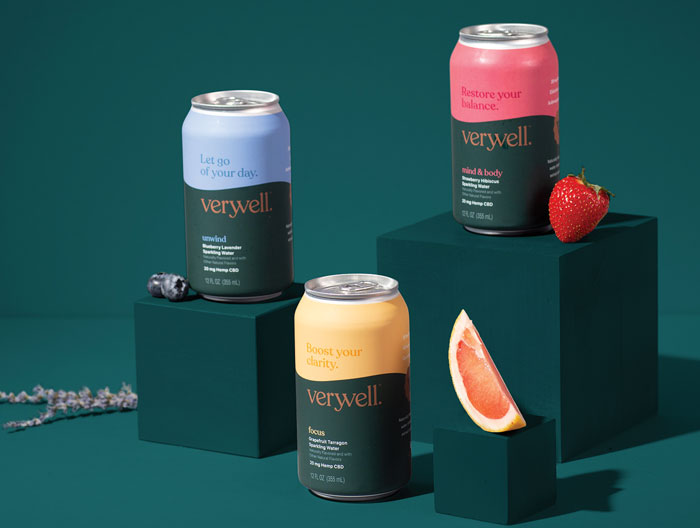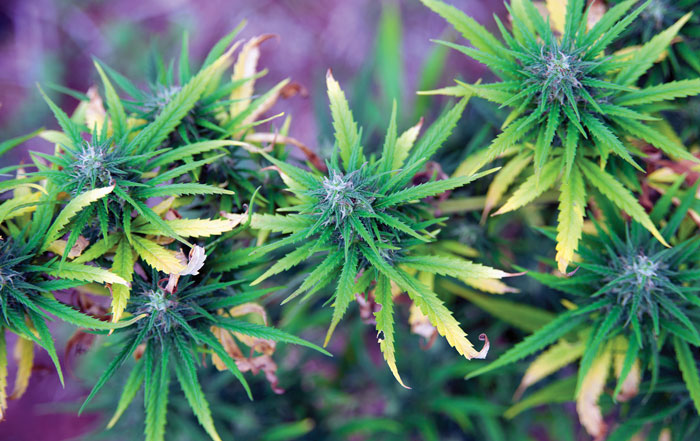Is the Mainstream Market Ready for CBD Ingredients?
INGREDIENTS
As legal marijuana gains a foothold in more countries and U.S. states, major food and beverage companies increasingly are dipping their toes into the fast-growing $20.5 billion global cannabis market. From flowers to concentrates to edibles, sales of cannabis products are projected to hit $90.4 billion worldwide by 2026, a compound annual growth rate of 28% in value, according to B2B research provider Markets-andMarkets.
North America is expected to drive many of the sales gains, and the U.S. market is buzzing with potential opportunities for foods and beverages infused with cannabidiol (CBD), a compound in cannabis plants that is not psychoactive. Twenty-eight percent of U.S. adults report having purchased a CBD product at least once, and sales of CBD edibles (food, candy, and beverages) in mainstream retail outlets are projected to hit $5.7 billion in 2024, according to New Frontier Data’s 2020 report Cannabis-Infused Products: U.S. Consumer Experience & Demand.
“Continued [cannabis] deregulation and social acceptance continue to impact consumer interest in CBD,” says Collette Kakuk, vice president of global marketing at Layn Natural Ingredients and its wholly owned subsidiary, HempRise. “Consumers are increasingly understanding the benefits of CBD and looking for consumption formats with which they are familiar.”
Cannabis-infused products largely fall into two groups: marijuana products with high amounts of THC (a cannabis compound that is psychoactive), and products with very low or nondetectable levels of THC (<0.3%, the U.S. legal standard for hemp) and high levels of CBD. Unlike high-THC marijuana products, whose U.S. sales are restricted to licensed dispensaries in legal jurisdictions, CBD-infused products are available at mainstream retail locations like grocery stores and mass merchandisers. Dispensaries continue to dominate U.S. CBD product sales, but grocery and convenience stores, drug stores, and mass merchandisers accounted for 12% of the $4.1 billion U.S. CBD product market in 2019 and are projected to account for 28% of the estimated $20 billion market by 2024, according to data from IRI, BDS Analytics CBD Market Monitor, and Arcview Market Research.
Major food and beverage companies are paying attention. Ocean Spray Cranberries unveiled its CarryOn line of CBD sparkling waters in Colorado last June: grapefruit Recover with 10 mg of CBD and blueberry Relax with 20 mg of CBD. In August, Pepsi-Cola Bottling Co. of New York began distributing Hillview’s Kalo hemp-infused seltzer to major grocery stores, bodegas, and natural food markets in the New York City area. And no less an American icon than Martha Stewart has put her moniker on a brand-new CBD pet product line available online from Canada’s Canopy Growth Corp., featuring soft chews and oil drops for dogs. The January rollout of the pet products follows the introduction of CBD gummies and oil drops for humans this past September.
Other beverage giants like Anheuser-Busch InBev, Constellation Brands, and Arizona Beverages are linking up with U.S. or Canadian cannabis companies to work on developing THC products. Pabst Brewing has licensed its name at no charge to licensed cannabis company Pabst Labs in California, which rolled out Pabst Blue Ribbon Cannabis Infused Seltzer in lemon flavor in October. The nonalcoholic beverage, available only to California customers, contains 5 mg of THC.
A Healthy Image
CBD ingredients are well-positioned for the mainstream food and beverage market because they tap into consumers’ ongoing interest in functional foods and natural approaches to health care. Although research-based evidence is far from definitive at this point, 70% percent of consumers believe CBD offers health benefits, according to the Natural Marketing Institute’s 2020 Whole Cannabis Study: pain management (43%), reduced anxiety (39%), relaxation (33%), and reduced inflammation (27%).
The U.S. Food and Drug Administration (FDA), on the other hand, strikes a more cautionary tone about cannabinoids, with this statement on its website: “We still have a limited understanding of the safety profile of CBD and many other cannabis-derived compounds, including potential safety risks for people and animals. . . . The agency wants to be clear that we have seen only limited data about CBD’s safety and these data point to real risks that need to be considered,” including liver injury, interactions with alcohol or other drugs, and male reproductive toxicity.
Nevertheless, the healthy halo that some associate with CBD makes it a natural partner with adaptogens and lesser-known cannabis compounds, industry observers say.
“On the CBD side, the biggest trend we’re seeing is combining CBD with specific amounts of minor cannabinoids, terpenes, and/or other functional health-focused ingredients,” says Keith Woelfel, director of R&D at Caliper Foods, which specializes in processing, manufacturing, and distributing soluble cannabinoid-infused consumer packaged goods and ingredients. “This approach is typically utilized to cater the product to specific ailments that CBD is already positively associated with, such as pain relief, sleep improvement, relaxation/reduced anxiety, and/or general health and wellness. It also helps new entrants stand out in the currently crowded CBD marketplace.”
“We are seeing a lot more naturally derived functional ingredients being paired with CBD in order to create specific experiences around energy levels,” agrees Michelle Sundquist, director of product management and development at SoRSE Technology, which provides water-soluble CBD, hemp, and terpene emulsions for infused CPG brands, including new SoRSE Clear, a stable, clear emulsion with a minimal sensory profile. “For example, if someone is looking for a relaxing experience, they may have a tea featuring CBD, lavender, and chamomile. For a post-workout recovery beverage, electrolytes are being paired with CBD, and for an afternoon pick-me-up, caffeine in the form of coffee or green tea is the functional ingredient to pair with.”
In fact, beverages are the format of choice for a growing number of consumers looking for healthy CBD options. “Most of the new product development and innovation has been more focused on RTD (ready-to-drink) beverages, tea, and coffee application areas,” says Woelfel. “We’ve also seen the average CBD dose per serving increase from 5 –15 mg to the 20–40 mg range, which is partially fueled from the cost of CBD dropping as the supply has increased over the last few years.”
In January, Truss CBD USA—a joint venture between Canadian cannabis company HEXO and Molson Coors Beverage Co.—launched its Veryvell line of nonalcoholic sparkling CBD beverages in Colorado in three flavors: Focus (grapefruit tarragon), Mind & Body (strawberry hibiscus), and Unwind (blueberry lavender), with 20 mg CBD.
“Veryvell is our self-care brand,” says Jane Armstrong Hockman, general manager at Truss CBD USA. “Adding these adaptogen combos gives consumers different beverages to use throughout the day. Many look at adaptogens first and flavor second.”
CBD gummies and hard candies are also popular with consumers for their consistency in delivery and their small form, says Jake Black, CEO and founding partner of Treehouse Hemp. With baked goods like cookies, brownies, and cakes, on the other hand, “it’s difficult in the United States to navigate the federal regulations,” he says.
“Gummies are very accepting of ingredients. With minor formulation tricks, you can put literally anything into a gummy,” adds Arup Sen, co-founder and CEO of Canada-based Infusion Biosciences and chief science officer and board of directors member at Sproutly Canada. “For the foreseeable future, gummies are going to be a very desirable project because of the simplicity of manufacturing [them] and the versatility of what you can cram in.”
Bitter Notes
The first CBD edible products to hit the market originated with the marijuana industry, says Dan Heiges, a food scientist at Silver Lion Farms, which is building one of the first and largest vertical organic hemp farms and industrial-scale CBD/CBG/fiber extraction facilities in the United States. “Manufacturers simply took established products such as gummies, baked goods, or chocolates and substituted CBD for THC,” says Heiges. “The development of CBD isolate changed everything. Isolate is a THC-free, 99.9% pure CBD distillate of crude oil from the hemp plant. This new ingredient can be used at much lower levels without the harsh terpene flavors. The only drawback is the bitterness of the ingredient, which can easily be overcome with bitter blockers.”
“Hemp has many inherent challenges in food and beverage formulations because it is a pungent, bitter plant with a notoriously strong ‘hempy’ flavor,” says Brian Zapp, creative director at Applied Food Sciences, which launched V-70 hemp heart protein and V-ONE hemp heart oil last July. “We have seen product manufacturers approach our CBD extracts in two ways: those who embrace [the flavor], and those who do everything they can to mask it.”
CBD’s inherent bitterness also makes it challenging to incorporate large doses of the cannabinoid into small serving-size products such as mints or mouth sprays, says Woelfel. “Intentful flavor and sweetener selection, the use of bitter masking ingredients, and strategic use of chemesthetic effects such as cooling or heating sensation are a few of the techniques that can help cover CBD’s bitterness in these small serving sizes.”
Solving for Solubility
Solubility is another issue, with recent innovations paving the way for easier formulation. “The second innovation in CBD ingredients is the development of nanoemulsion systems,” says Heiges. “While the CBD nanoparticles are not water soluble, the particles are small enough to remain suspended in high-viscosity beverages.”
Infusion Biosciences has developed methods to recover water-soluble forms of cannabinoids and terpenes and delivers them at scale in its Infuz2O ingredient. The water-soluble hemp extract ingredient is featured in its second commercial launch in the United States by Select Juice LLC in its sparkling Hemp Infusions line under the brand RIJUICE that incorporates the extract with fresh-pressed juice.
The Strawberry Hibiscus, Mandarin Tranquility, and Lifting Lemon Ginger varieties are available in the Northeastern United States.
Any food or beverage product that is viscous or has a high fat content will easily integrate CBD oil, says Heiges, but “separation will occur in low-fat products without the use of emulsification systems. Isolate and nanoemulsions have helped, but without an emulsifier, separation may still occur over time.”
Fiberstar’s Citri-Fi citrus fiber is suitable as both a carrier and emulsifier for converting liquid or viscous cannabis and hemp oil into dry flowable powders that can either be used in a dry form or hydrated to form stable emulsions, according to Brock Lundberg, president of R&D and applications at Fiberstar. “Citri-Fi can bind CBD oil at a 50-50 ratio and remain a dry flowable powder. However, in a hydrated form, Citri-Fi is able to bind up to eight times its weight in oil and maintain a stable emulsion,” he says.
Delivery Timing
Formulating CBD products that deliver a quickly absorbed, consistent dosage continues to be an issue in the industry, says Woelfel. “As consumers have become more educated, more people are seeking out fast-acting cannabinoid-infused products that are more easily absorbed in order to have a quicker onset and more predictable experience,” he says. “Consumers do not want to wait 120 to 180 minutes to get the functional health benefits of cannabinoids, as is the case with many fat-based cannabinoid products.”
Woelfel says it’s important for cannabinoid ingredients to be added into food and beverage products in a way that ensures the cannabinoids are homogenously distributed throughout the product. In addition, formulators should conduct shelf-life studies to ensure the cannabinoid content remains stable for the full duration of the declared shelf life.
“In the CBD industry in the United States, a lot of times when you buy a product, the level of CBD is not true to what’s in the label, or doesn’t have any CBD in it at all,” says David Durkee, vice president of new ventures at Quicksilver Scientific, which provided nanoemulsion delivery technology for use in the new Veryvell CBD sparkling waters. “It’s hard to tell if people are willfully not formulating correctly, or just inexperienced in this space.”
“Without clear FDA guidelines, the industry has operated as the wild, wild West, which is not sustainable,” says Kakuk. “There is a known lack of consistency in CBD ingredients and finished products. Due to the popularity of CBD, many inexperienced players are getting into the supply game.”
Hilary Dell, director of marketing and sales at Treehouse Hemp, recommends vetting a number of different CBD ingredient manufacturers, “more than [you would] with other industries. There’s so much pseudo-science in the industry, so you have to take it upon yourself to [determine] what tests you want to see from ingredients suppliers,” she says. “If three [suppliers] have CBD isolates, you can’t assume they are all the same. You have to do due diligence when it comes to testing.”
Wisconsin-based CBD supplier Connoils, for example, controls its ingredients from farm to fork. “We extract hemp here for our product line,” says Sonja Hintz, project manager for the Abbychristopher CBD brand at Connoils, which works with Wisconsin hemp farmers. “We have full traceability from farm to finished product. We test the soil where it was planted, and the hemp after harvest is followed all the way through to the finished product.”
One possible pitfall of insufficient testing? Manufacturers could end up having to recall product if it ends up testing above the 0.3% legal THC limit, says Woelfel. “This could occur just based on lab testing variability, as it’s common to get slightly different potency results just from sending the same exact product to multiple labs.”
Expanding Beyond CBD
While CBD is having its moment in the sun, other cannabis compounds are also generating more interest, says Layn’s Kakuk. “CBD was initially the most readily available cannabinoid, and now as more data unlocks the power of the endocannabinoid system [in the human body], we are discovering increased opportunities from minor cannabinoids such as CBG, CBC, CBN, CBGa, as well as a series of terpenes, all of which are found in hemp extracts,” she says.
“In addition to CBD, there is significant research into CBDa, the precursor to CBD, for control of nausea, serotonin release, and treatment of inflammation,” says Silver Lion Farms’ Heiges. “CBN has been shown to induce sleep and increase sleep time, and CBG has been shown to increase dopamine levels, which regulate mood, sleep, and appetite.”
Disclaimer Regarding Cannabis: IFT provides the opportunity for members to post information and opinions on many subjects, including cannabis. Please understand that this action by IFT does not constitute any opinion by IFT regarding the use of cannabis in any form or for any purpose, and such information and opinions are only those of the persons posting and not of IFT. IFT is not and does not provide any legal advice regarding cannabis. Possessing, using, distributing, or selling cannabis is subject to varying international laws, and is a crime under U.S. federal law and that of many states. IFT does not advocate or support violating any such laws.


